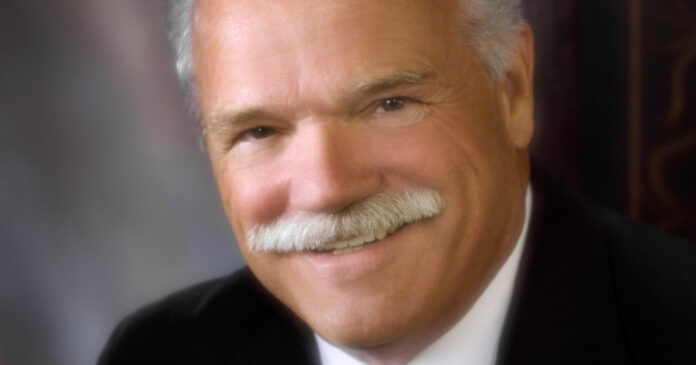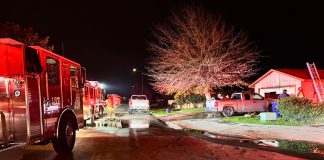Have you ever had a situation that required you to step way out of your comfort zone? Perhaps meeting someone that is important to your future for the first time? Or maybe you are looking for a new job that might be a little more difficult than you originally thought it would be. I’m sure that you have felt that way.
I haven’t had it happen to me that often, but I do remember a few times where I couldn’t figure out whether I wanted to go forward or just forget the entire endeavor.
I can remember putting on a parachute and asking myself if I really wanted to jump out of an airplane. Anxiety was the only emotion I remember. I knew if I kept going I would jump. There were other guys in the raggedy old plane that probably had the same thought.
I kept remembering that if I finished jump school, I would be making another $75 a month. That may not sound like a lot of money, but I was only making $54 a month, so a raise of that magnitude would allow me enough money that I might be able to go to a movie or buy cigarettes for the month. In other words, I knew that there was a better conclusion to my quandary.
I can’t be sure because other than those emotions my life wasn’t bad and I didn’t have to make decisions that would concern many others. I was alone with my own thoughts, and every time I made a move it was something that only bothered me.
There are thousands or maybe even millions, depending on who you ask, that are faced with these life-changing decisions every day. Decisions that you and I are seldom required to make. I am referring to the multitude of refugees that cross over our southern border each week seeking a better life for themselves and for their families.
Perhaps I have never had to make such an important thought about my life and the lives that I feel that I am responsible for. If I had, I would not contemplate and the decision would not be difficult.
When I watch the refugees wading across a dangerous river to get to the United Sates, I find it difficult to imagine how they must feel. They are locking arms with each other and holding babies close so as to not be swept away or watching a loved one disappearing under the water with the current. The horror they must feel is impossible to contemplate.
Years ago when my children were very young I had told them that the border between the United Sates and Mexico would soon cease to exist. Although it isn’t easy to get to the United States from anywhere south, it is getting easier as the border is not guarded as it has been in the past.
If a person is caught trying to cross into the United States, they are, hopefully, being treated as humans. Some are refused entry and others are sent somewhere within the United States. Hopefully they will be able to reunite their families and become productive citizens.
I know there are those who feel that this influx of people are, for some, difficult to accept. Some are of the opinion that they are only here to take advantage of our generous government programs, but anyone who lives near farms or meat-packing facilities knows that these folks are not the ones you see on the street corners holding a torn piece of cardboard and asking for spare change. These folks are not unlike my mother and father in the early years of their marriage — willing to do just about anything to make sure their family can eat.
I have asked farmers from this area and found that the labor problem, although not as bad as it was in the past, is still difficult to manage. Farmers are trying to find labor through a government program called H2A, where they still have to look for labor, as Johnny Cash used to say, “Come Picking Time.” There are labor contractors that help, but labor around farms is still hard to manage.
There are farmers here in California who try to plant and harvest in such a manner that they can employ steady labor. The families that work that way have a steady job and can make plans about how to get their children educated.
I was speaking with a farmer who has deep roots here in our valley and he tells me of families that have sent their children to college and that their main reason for being here is so that they can do this. I guess all families do this because the family this farmer told me about has children all attending higher education with a goal in mind to be a policeman or doctor or anything we would all wish for our children.
I cannot condone the idea of folks coming to the United States by simply ignoring the rules, but as long as our government allows them to do so, I can see a bright future for the children of these émigrés.
I didn’t grow up hungry, but I wasn’t a candidate for college either. I think that the men and women who face the danger of attempting to cross the Rio Grande River, not even knowing how to swim or carrying small children during the trip from the southern part of our hemisphere, are looking for a future. A brighter future than what they could find where they came from.
It was desperation that led me to the recruiting office. I had worked on a farm since I was old enough to drive a tractor or irrigate alfalfa. I also wanted something different. Something that farming didn’t offer.
The hand that was held out for me was service to our country. It was very hard to succeed because you are responsible for human lives, but I cannot believe it was any harder for me than the folks that come here to succeed for their families.













